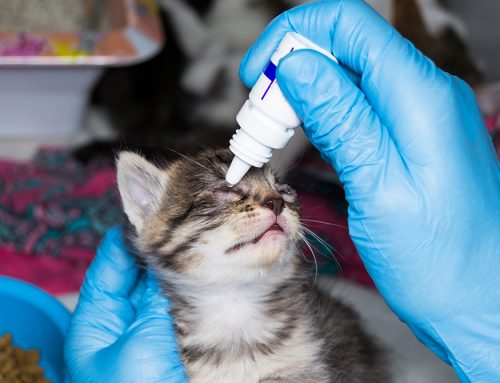Overview:
Chronic vomiting and diarrhea in dogs can be a challenging and frustrating problem to treat. Successful management relies on systematically ruling out all possible causes. Persistent symptoms require careful evaluation to identify and address the underlying issue.
Symptoms:
- Frequent vomiting or diarrhea lasting more than a few days
- Presence of blood or mucus in vomit or stool
- Dehydration signs such as dry gums or excessive thirst
- Loss of appetite
- Weight loss
- Lethargy
Possible Causes:
- Food Allergy:
- Dogs may suddenly develop an allergy to a protein in their food. This reaction can occur without any obvious reason. Diagnosis involves a food allergy trial using novel nutrient sources. Confirming a food allergy can take several months.
- Foreign Bodies:
- Objects like small balls or marbles can cause chronic vomiting and/or diarrhea if they do not completely obstruct the gastrointestinal tract. Diagnosis is typically confirmed through radiographs (X-rays).
- Internal Parasites:
- Internal parasites must be ruled out with specific testing to identify potential infestations.
- Chronic Pancreatitis:
- This condition impairs the ability to digest food properly, leading to diarrhea.
- Chronic Liver or Kidney Disease:
- These diseases can cause intermittent vomiting. Blood chemistry analysis is useful for confirming these conditions.
- Inflammatory Bowel Disease (IBD):
- IBD is thought to result from an allergic reaction to chronic gastrointestinal irritation. It can affect the stomach and/or intestines. Symptoms depend on the location of the inflammation:
- If the stomach is affected, vomiting is usually the primary sign.
- If only the colon is involved, diarrhea is more common.
- Diagnosis typically involves a biopsy and histopathological examination. IBD often cannot pinpoint the exact cause, leading to a diagnosis of “idiopathic IBD.”
- IBD is thought to result from an allergic reaction to chronic gastrointestinal irritation. It can affect the stomach and/or intestines. Symptoms depend on the location of the inflammation:
Treatment:
- Idiopathic IBD: Treatment usually involves corticosteroids like prednisone. The goal is to use the minimal effective dose to manage symptoms. Therapy often starts with high doses, which are then tapered over time. Prednisone is commonly used and remains in the body for about 36 hours. To avoid suppressing adrenal gland function, prednisone is generally administered every 48 hours, allowing the adrenal glands to produce cortisone on their own. The glands primarily function during the night.
Diagnosis:
To determine the cause of chronic vomiting and diarrhea, your veterinarian may perform:
- Physical Examination: To check for signs of dehydration or discomfort.
- Diagnostic Tests: Including blood work, fecal exams, radiographs, or ultrasound to identify potential causes.
- Dietary History Review: To assess recent changes or exposures to potential allergens.
Prevention:
To reduce the risk of chronic gastrointestinal issues:
- Provide a Balanced Diet: Ensure your dog’s food is high-quality and nutritionally balanced.
- Avoid Table Scraps: Prevent ingestion of inappropriate foods.
- Regular Vet Check-Ups: Maintain routine health evaluations and vaccinations.
- Prompt Veterinary Care: Address gastrointestinal symptoms early to prevent complications.
When to Seek Help:
If your dog is experiencing chronic vomiting or diarrhea, it is crucial to seek veterinary care promptly. Mission Veterinary Clinic in the San Fernando Valley is equipped to provide urgent care on a walk-in basis. We do not accept appointments but will triage and prioritize care based on severity.
Contact Us:
Mission Veterinary Clinic
16915 San Fernando Mission Blvd,
Granada Hills, CA 91344
Phone: 818-363-8143
For more information or to visit us, please contact us directly.










Leave A Comment